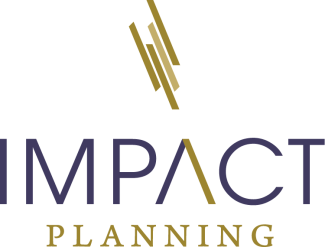
5 Actions that are “Next Level” Adulting
Becoming an adult can be intimidating, overwhelming, and downright confusing but the fact of the matter is, you have to do it in order to be an upstanding citizen in this world. It’s hard to understand exactly what steps to take to get your financial life in check so I’ve put together five simple actions that can you get you on your way to “adulting.”
- Get your short-term savings built up
To many, “investing” sounds sexy and conjures imagery of “champagne wishes and caviar dreams” but the best investors who have done it successfully know the importance of building up an emergency fund.According to a GoBankingRates survey in 2017, 61% of even older, more “adult” millennials (between 25-34) had less than $1,000 in their savings account. I would expect this from someone in college or a recent grad but SERIOUSLY 25-34 year olds? We have got to get our act together as a generation and work on our savings.
A good rule of thumb is to save 3-6 months’ worth of net salary, or at very last the non-discretionary costs such as rent/mortgage, utilities, groceries, etc. The best way to accomplish this if you’re living paycheck-to paycheck is to have a super small amount, $5 for example, come directly out of your paycheck and get deposited into a savings account that you won’t touch. You won’t even miss it and it’ll add up faster than you think.
- Get the right insurance
Notice that I have italicized “right” and not that you should just get insurance. There are so many questions regarding insurance and while I can’t provide recommendations for your unique situation, I can certainly provide some valuable info on which insurances you should consider.
- Auto/Property—these are typically bundled (thought they don’t have to be) and you’re typically looking for the cheapest price, right? Wrong! You shouldn’t simply look at the pricing and have that fulfill your need. For example, if you’re a home owner and you have a rare or special collection, you need to make sure your insurance agent/company understands that unique need. When someone steals your collection of beanie babies (Princess Di included) and the insurance company only dishes out $1,000 because that’s the limit for all perils, you’ll be SOL.Consider your insurance agent and how they treat you as well as their process to determine the best fit for you. Or if you’re a stellar driver, try some of the new insurance companies like Root Insurance that bases your rates on your actual driving record but still protects you (and is frankly freaking cool).
- Disability—this is less common to purchase as an individual because most of us don’t like to think about the potential of us losing our job and becoming disabled for a long or short period of time. Depending on the profession, it may be worth considering a policy to protect an income stream should something unfortunately happen. It’s best to start with the employer though since many small and large employers purchase group disability insurance where the cost is nearly negligible.
- Life Insurance—this one is a biggie. With the many life insurance salesmen & women telling the world it’s a necessity, it seems as though it’s a requirement to purchase a policy. But which kind? Whole? Term? Universal? Shouldn’t there be different types of insurance for different types of situations?Yes. There should be and unfortunately, there isn’t the best education to consumers on which to purchase and most importantly, WHY?
I’m going to make this very simple. Most individuals who don’t have children, don’t have a non-working spouse, or don’t have a large amount of debt in which they co-signed with someone do not need life insurance.
This is not to say there aren’t instances in which individuals should have life insurance. It is absolutely a necessary protection if a spouse doesn’t have an income, or there are young children to protect. I would in fact likely recommend a term policy to protect a family should the income producing spouse get hit by a train. The important thing to remember with life insurance is to understand when it may be necessary and talk to someone, preferably your financial adviser, about when you may need it. Then purchase it. #Adulting.
- Get an Estate Plan
I know it’s hard to think about what happens in an instance of incompetence or death but it is critical to address this one. I can’t stress this enough. If nothing else, at least get a simple will in place.
- Wills–According to AARP, 78% of millennials don’t have a will in place. That number decreases slightly for Gen Xers but is still around 64%. Folks, this is the easiest and most known document and none of us have it in place! I know you’re saying I don’t have much that will pass down or my beneficiaries are clear on all of my accounts. That may be true but you still have belongings and you want to make sure the appropriate individual gets those belongings when you pass.
- Power of Attorney—this allows a named individual to act on one’s behalf regarding financial affairs should it be needed. No need to belabor the point—just get it done and make sure it’s the right person. Not a boyfriend of 2 weeks.
- Healthcare Power of Attorney and Medical Directives/Living Will—these both provide answers regarding your medical situation should something happen. A HC POA appoints someone to make medical decisions on behalf of an individual and a Living Will directs medical staff of an individual’s wishes should he/she be in a certain medical situation. Bottom line: no one wants to re-live the Terri Schiavo case from 2005 so get this done.
- Know your tax deductions (and use them!)
This is something to consult your CPA, EA, or Financial Adviser with but I’m simply saying that as a new found “adult”, it’s important to at least know what the word tax deduction means. There are actions that can be taken that not only encourage long-term savings but also give a tax break in the process. This becomes increasingly more important as income rises but either way it’s important to know these so they can be employed. Some of the common ones to think about are:
- 401k/IRA contributions
- HSA contributions
- Self-Employment expenses (yes, you gig economy folks)
- Student loan interest
- Educator expenses
- Hire a financial adviser
You didn’t expect a financial adviser to write a post about “how to adult” without mentioning the need for one of us, right?All joking aside, I’m not stating that you need to hire a certain kind, in particular, or pay thousands of dollars for a full plan if you don’t need one. I’m simply saying that when your life starts to have even a small level of complexity, it makes sense to have a professional take a look and help you with educated decisions about your financial future.
A financial adviser isn’t just someone who manages your portfolio (we have robos for that), but someone who is a partner with you and can ensure the vision you’re building for your life, whatever that may be, is in line with your actions and values.
Now go on and get it, adult.
References
Huddleston, Cameron. “More Than Half of Americans Have Less Than $1,000 in Savings in 2017.” GOBankingRates, Sections Best Brokers 2018, 5 June 2018, www.gobankingrates.com/saving-money/savings-advice/half-americans-less-savings-2017/.
Lumpkins Walls, Barbranda. “Survey: 60% of Americans Lack Will or Estate Planning.” Saving and Investing, AARP, www.aarp.org/money/investing/info-2017/half-of-adults-do-not-have-wills.html.
A professional. Please see pg 25 of the field guide regarding the use of superlatives.
Regulators do not permit use of superlatives and language that cannot be substantiated(“best,” “unique,” “expert,” etc.)

